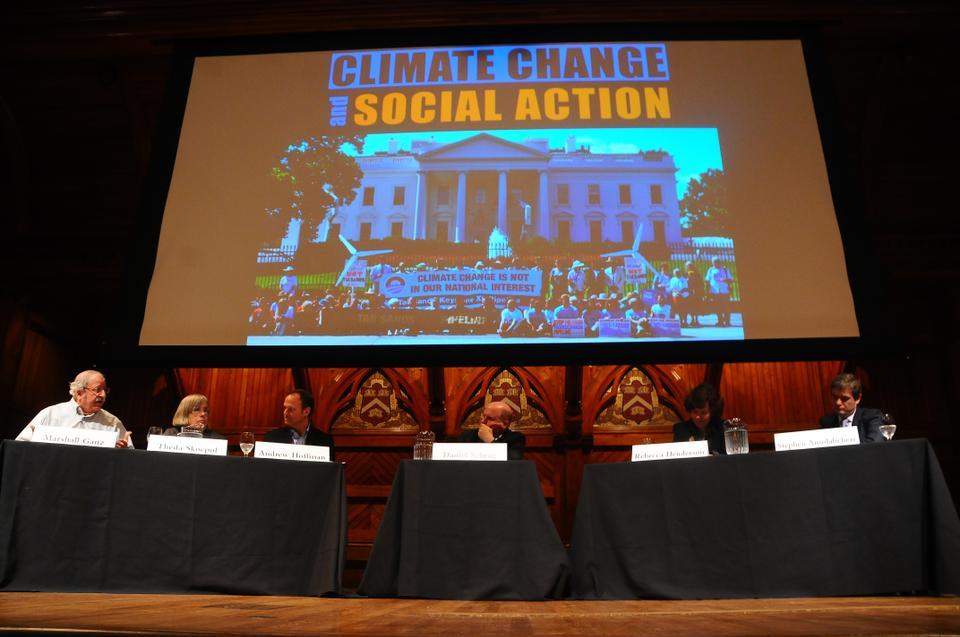
News
HMS Is Facing a Deficit. Under Trump, Some Fear It May Get Worse.

News
Cambridge Police Respond to Three Armed Robberies Over Holiday Weekend

News
What’s Next for Harvard’s Legacy of Slavery Initiative?

News
MassDOT Adds Unpopular Train Layover to Allston I-90 Project in Sudden Reversal

News
Denied Winter Campus Housing, International Students Scramble to Find Alternative Options
With Faust in Attendance, Professors Advocate Environmental Activism

Speaking to an audience in Sanders Theatre that included University President Drew G. Faust, a panel of professors from Harvard and the University of Michigan on Monday night urged both citizens and businesses to make environmental activism their top priority.
During the event, panelists stressed the importance of building a consensus that motivates individuals and corporations to act, rather than just passively voicing concern about climate change.
According to panelist and Harvard government professor Stephen D. Ansolabehere, polls show that most Americans say they are concerned about climate change, but are reluctant to do anything about it once costs are mentioned.
“People are of two minds about global warming,” he said.
By way of a solution, Ansolabehere suggested that the climate change discussion be framed in the context of deeply personal local issues, rather than as an abstract concept. Panelist and Harvard Kennedy School lecturer Marshall L. Ganz ’64-’92 said that environmental activist movements need to create a sense of both urgency and hope in order to get people to act.
He cited other social campaigns, like the Civil Rights Movement, that worked at “changing people and how they thought.”
University of Michigan professor Andrew J. Hoffman argued that today’s public must fundmantally shift its attitude regarding environmentalism, just as the 19th century public shifted its views on slavery during the abolitionist movement.
Harvard Business School professor Rebecca M. Henderson stressed the importance of getting businesses involved as well as individuals. She said that some firms are following investment guidelines that take sustainability into account while preserving returns. She added that universities would be wise to “ally” themselves with this type of investment.
At the end of the panel, Faust stepped out of her seat and onto the stage. She wrapped up the event by saying that activism necessitates “mobilizing universities” in order to “support the best of human life.”
Audience members said that they generally appreciated the panelists’ discussion of environmental activism outside of a scientific framework.
“I think it was really interesting to see Harvard faculty involved in different areas we wouldn’t normally associate with the issue,” said Alli J. Welton ’15, who is a board member of Divest Harvard, Harvard’s chapter of environmental activism group Students for a Just and Stable Future. “In terms of really making a difference, we need the political scientists to be talking about it.”
Want to keep up with breaking news? Subscribe to our email newsletter.
